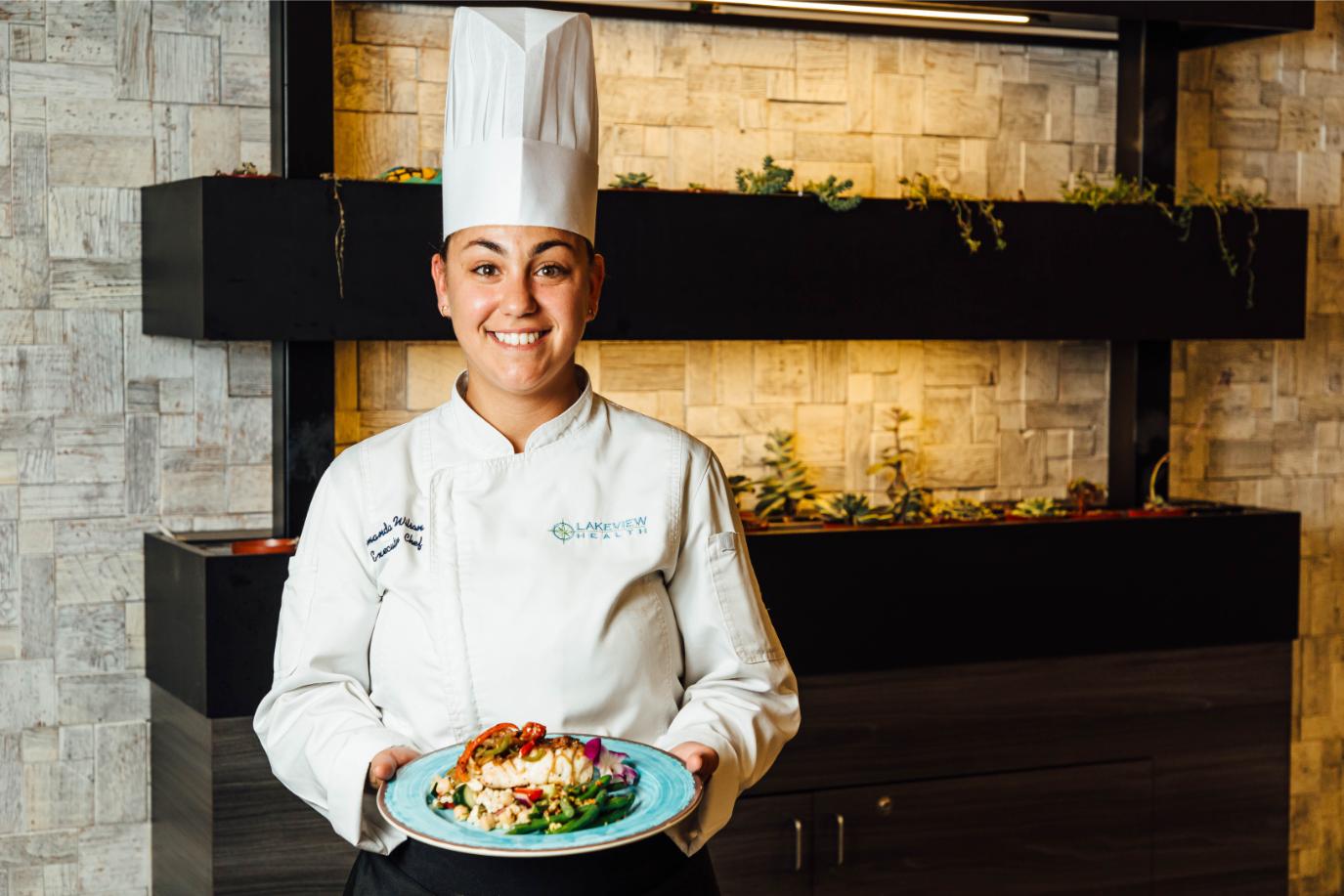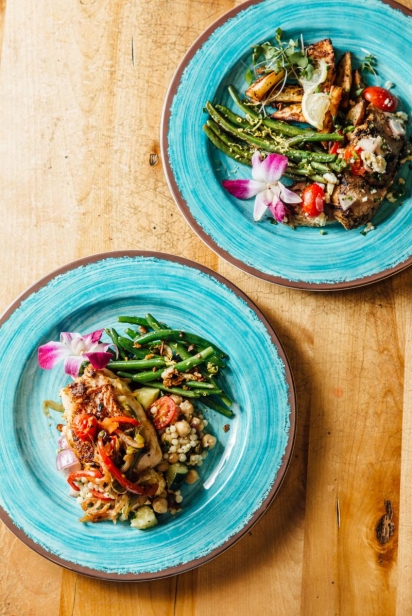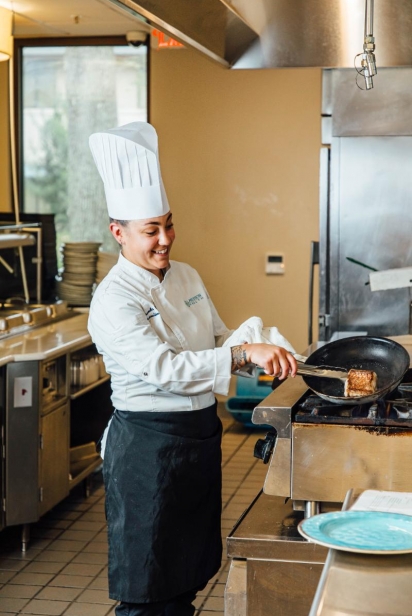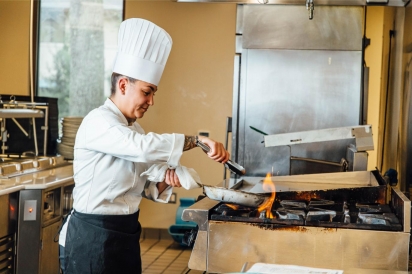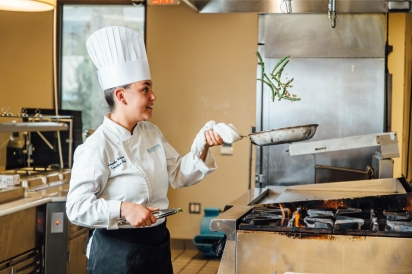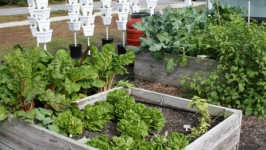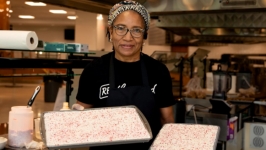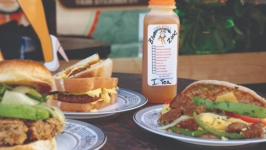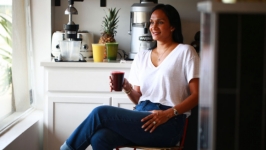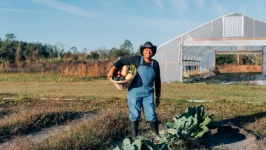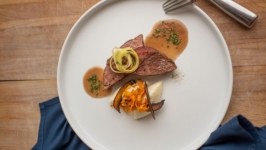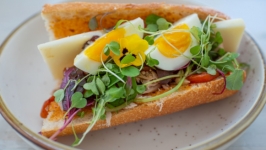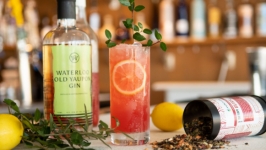The Healing Power of Food
Amanda Wilson, executive chef at Lakeview Health Addiction Treatment and Recovery Center, had an epiphany several years ago that altered her culinary course away from her background in traditional fine dining. She had finished a long restaurant shift where she tried everything to make one difficult customer happy – from comping her meal to offering up gift cards – when it dawned on her: I want to cook for people who really need it, food that makes a difference in their quality of life.
The next day, a sous chef position at Mayo Clinic was posted. She applied, and thus began cooking to help people heal with food. Wilson thrived at Mayo, eventually climbing the ladder to become their traveling corporate executive chef managing 24 hospitals and five executive chefs. Then an opportunity at Lakeview Health, an addiction treatment and rehab facility in Jacksonville, opened in 2021, bringing her even closer to her dreams of using food to help in the healing process for body and mind.
“We’re teaching our patients how to use food for its psychological, physical, emotional and nutritional value,” Wilson says. “I’ve learned so much about addiction and substance abuse and the power of food in emotional and physical healing.”
Learning about addiction is personal for Wilson. The daughter of an addict, she was adopted and spent a lot of time with her grandmother, with whom she would often cook. “Originally, I wanted to be a doctor to help sick people, so healing with food is exciting to me, it is my passion,” she says. “At Lakeview Health, I feel at home. I can do what I do best while learning more about the disease that upended my family, in addition to teaching about the art of food.”
At Lakeview, she works with an in-house dietician to create specific meal plans for patients, depending on their specific needs. Between patients and staff, her team feeds about 300 people daily. “We try not to have the same meal twice in a week to expose them to different ethnicities and cuisines, and incorporate flavors that have specific health benefits,” says Wilson.
The menu features Indian (for turmeric and ginger benefits) and Mediterranean (to lower blood pressure and support recovery) along with ingredients like cardamom, coriander, star anise, fennel seed and fresh fruits and vegetables. Wilson also loves to incorporate Cuban food regularly on the menu, a nod to her heritage. “Food is very important to our leadership team. It’s a priority. Residents come in with specific needs. With substance abuse, many are malnourished. They may not have had a meal in a while, and we provide three hot meals a day and get them closer to recovery,” says Wilson. “They are also often lonely; food provides comfort and a way to bring residents together.”
In addition to addiction and substance abuse treatment, Lakeview opened Koru Spring at their campus this year, helping people who struggle with eating disorders. Food education is an increasingly vital part of their program offerings.
Future plans include expanding their on-site garden where patients and staff can help with its care as well as culinary teaching events for residents. Wilson already hosts a regular in-house culinary class for the staff, on everything from how to scale and cook a 50-pound fish to making some of her family’s Cuban recipes.
“So many of our alumni come back to visit, and they tell me how much they miss the food,” Wilson says. For someone who started in the industry as an assistant baker at just 14, the customer feedback at her current gig more than makes up for that one unsatisfied customer who long ago helped put Wilson on her current path.


